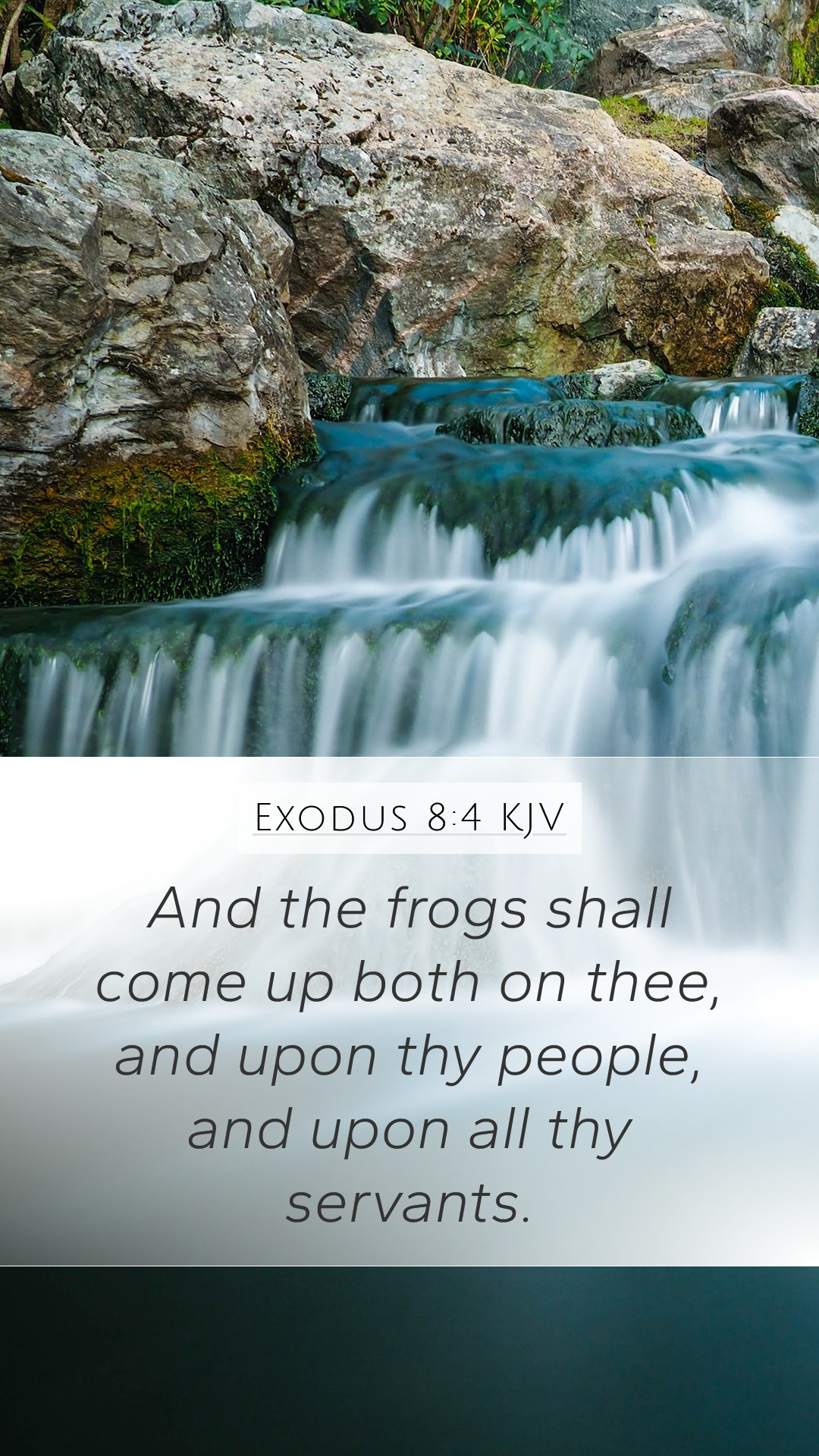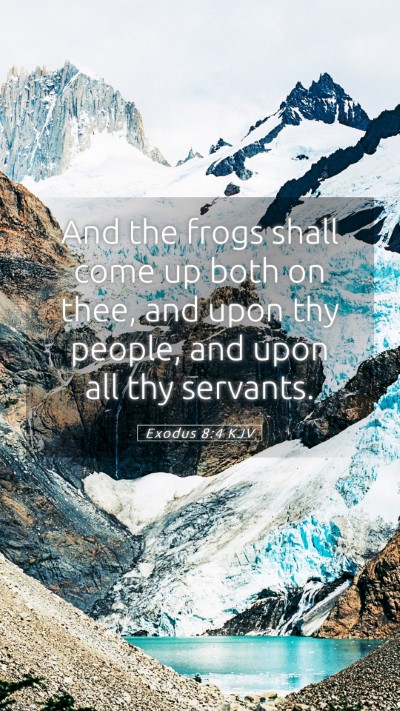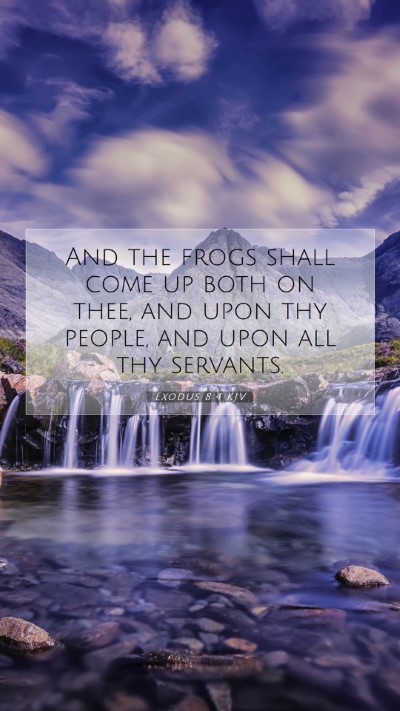Understanding Exodus 8:4
Verse: Exodus 8:4 - "And the frogs shall come up both on thee, and upon thy people, and upon all thy servants."
Bible Verse Explanations
This verse occurs within the context of the second plague of Egypt, where God, through Moses, announced that frogs would invade the land. The plague serves as a judgment against Pharaoh and the gods of Egypt, demonstrating God’s power over creation.
Bible Verse Commentary
- Matthew Henry: Henry outlines that this plague illustrates God's might and His relentless pursuit to free His people. The frogs are not merely a nuisance but a clear sign of God’s displeasure against the idolatry of Egypt, specifically against Hekt, the goddess of fertility, often depicted with frogs.
- Albert Barnes: Barnes emphasizes that the frogs serve as a symbolic assertion of divine control over natural elements. The sheer number of frogs surmounting the land was a testament to God's authority. Pharaoh's eventual hardening of the heart reflects humanity's often stubborn resistance to divine will.
- Adam Clarke: Clarke notes that the intermingling of frogs with people represents spiritual pollution. The priests of Egypt, who would keep such creatures at bay, found themselves overwhelmed. It illustrates how God can bring disruption even to those who think they are protected by their rituals and deities.
Scripture Analysis
This passage invites a deeper analysis of how God's judgments are meant to prompt repentance. The detailed nature of the plagues illustrates His desire for the Egyptians to recognize His supremacy. The excessive frogs are not just an inconvenience; they represent a serious challenge to the Egyptian lifestyle and religious practices.
Historical Context
Understanding this verse requires knowledge of the traditions and beliefs of ancient Egypt. Frogs were considered sacred and were associated with fertility. Moses’ warning and the ensuing plague would have been deeply provocative, challenging the Egyptians' religious convictions directly.
Application of Exodus 8:4 in Daily Life
In modern contexts, this verse serves as a reminder of the consequences of ignoring divine authority. Just as Pharaoh resisted change, individuals today may also resist areas in life where divine intervention is needed. This prompts reflection on how to align oneself more with God's will rather than stubbornly remaining in adverse situations.
Key Takeaways
- God’s message through Moses was consistent: a call to repentance.
- Resistance to divine will often results in further spiritual oppression.
- The symbolism in plagues serves to teach us about faith and the importance of acknowledging divine authority.
Related Cross References
- Psalm 105:30 - References the frogs as a reminder of God's wonders among the Egyptians.
- Exodus 7:26 - Introduction of the plagues and God's communication with Moses.
- Exodus 8:1-2 - The initial call to Pharaoh about the plague to come.
Conclusion
Exodus 8:4 serves as a pivotal moment in biblical narrative and theology. It encapsulates the struggle between divine authority and human obstinance, illustrating the dire consequences that can come with ignoring God’s calls for repentance and ultimately leading to liberation. Understanding such verses enhances our Bible study insights and strengthens our Biblical exegesis skills, fostering a deeper connection with God’s Word.


